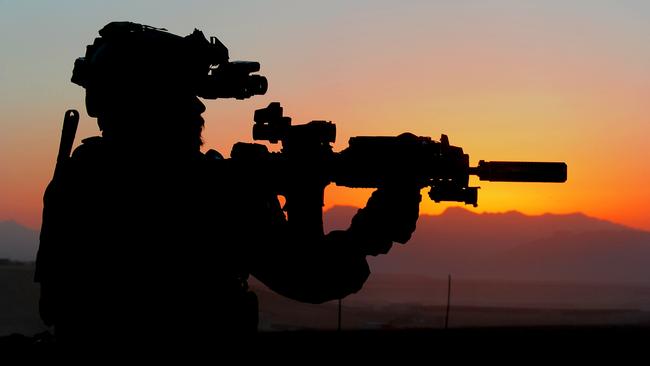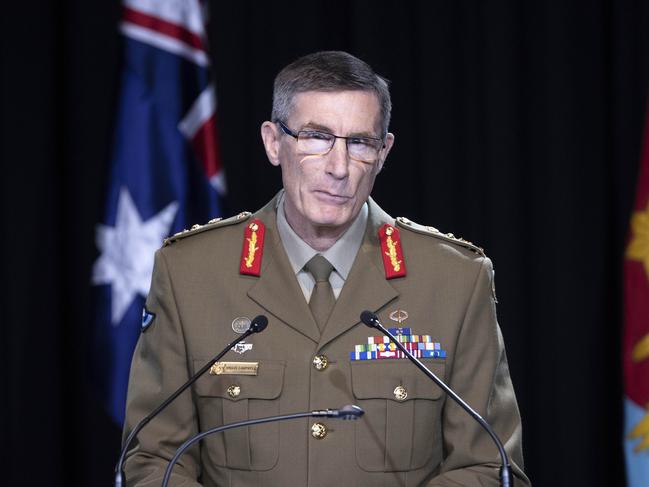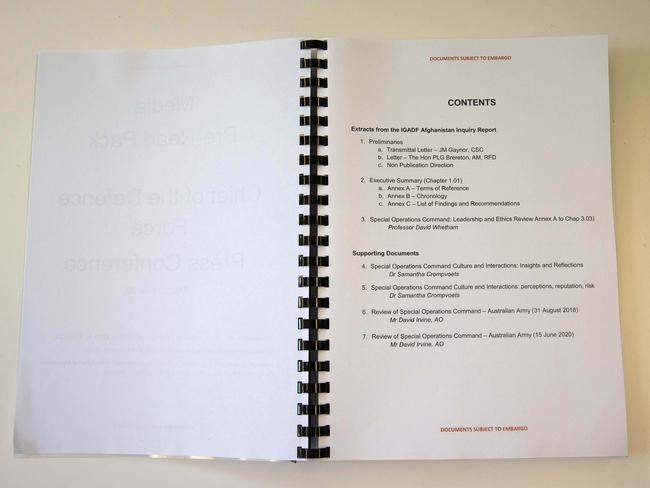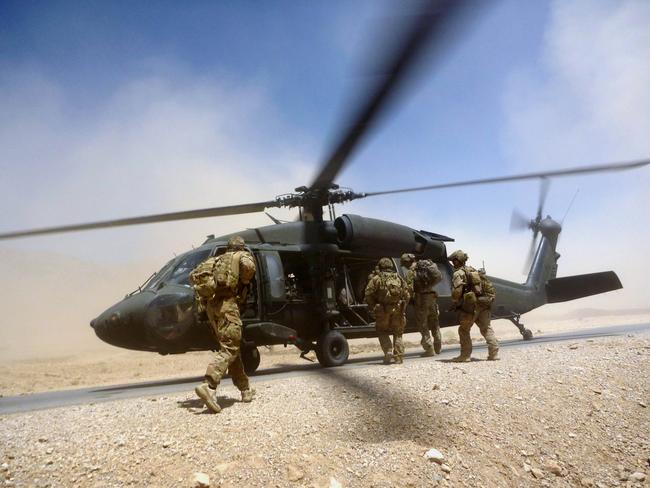New report blows up Brereton inquiry into alleged Special Forces war crimes
An independent probe of the controversial Brereton inquiry into alleged war crimes has delivered its findings into where the accountability and responsibility lay for what happened in Afghanistan.

National
Don't miss out on the headlines from National. Followed categories will be added to My News.
The inquiry into alleged Special Forces’ war crimes in Afghanistan set out to give “blanket exemption” of accountability for the highest levels of the ADF and Defence, according to an independent probe into the controversial inquiry.
And to this day, command accountability from what had been a “catastrophic organisational and governance failure” in Afghanistan has still not been dealt with.
The conclusion appears to vindicate former and current Special Forces troops and their families who have long claimed they were made scapegoats to protect the military’s integrity and top brass.
But the full extent of that “exemption” may never be revealed with Defence blocking release of the final review into the 2020 Afghan inquiry on the basis it “could prejudice the ability of Defence to obtain such frank opinion and advice in the future”.

The revelation comes as ADF chief General Angus Campbell will on Thursday give evidence to the Royal Commission into Defence and Veteran Suicide, about his leadership.
The Afghanistan Inquiry Implementation Oversight Panel was set up as an independent investigative body to examine the findings of the Afghan Inquiry by former judge and Army reserve Major General Paul Brereton.

The panel, reporting directly to the Defence Minister Richard Marles, was specifically tasked with ensuring Defence’s addressed root causes of culture and behaviour that prompted the Inquiry in the first place.
But the highly respected three-person panel - former Inspector-General of Intelligence and Security Dr Vivienne Thom, former Secretary of Attorney-General’s Department Robert Cornall and University of Tasmania vice chancellor Professor Rufus Black - found unlike civil society Defence did not take responsibility.
The Brereton inquiry found that alleged criminal behaviour was concealed at patrol commander level and that’s where responsibility lay.

“But in relation to non-criminal levels of responsibility, while Brereton found at some higher command levels their moral command accountability and responsibility for what happened under their command, Brereton exempted the highest levels of Defence leadership at the relevant times of any responsibility for the grave misconduct which occurred in Afghanistan,” Mr Cornall noted.
“They were not required to give evidence to the Inquiry or included in the Inquiry’s attribution of accountability for any war crimes. The lack of any accountability at that level is bitterly resented by many former and present members of Special Forces and the Defence family.”

Mr Cornall told the royal commission his panel had to look at organisation, leadership and culture for responsibility and at least analyse if there were also failings of leadership which Brereton did not do.
When asked if Defence had since done this, Mr Cornall said “no it hasn’t”.
Professor Black added when failures occur it was important to identify who was responsible for the “architecture that led to the problems”, not necessarily for punishment but for accountability, learnings and change.
Defence Secretary Greg Moriarty agreed command accountability had still not been appropriately dealt with but assured it was being addressed.
Queensland Senator Malcolm Roberts has demanded in the Senate Mr Marles release the panel’s final report.
“Why are they hiding the final report,” he asked.
“We suspect it is going to be very negative about the Defence department … the government is thumbing its nose at the Senate.”
Mr Marles has told the Senate that the panel report canvased sensitive matters and its premature release “may potentially prejudice criminal proceedings”.




